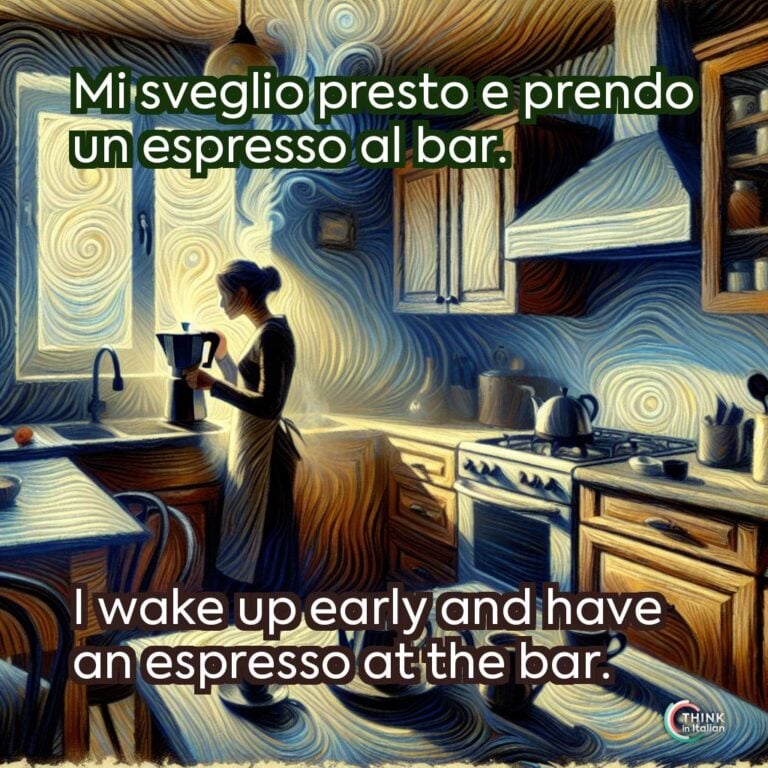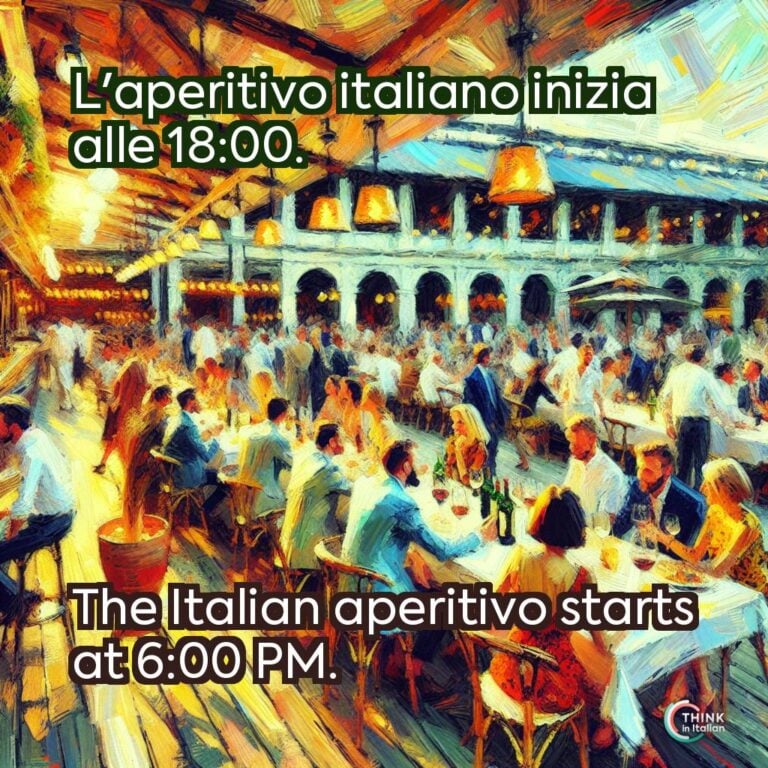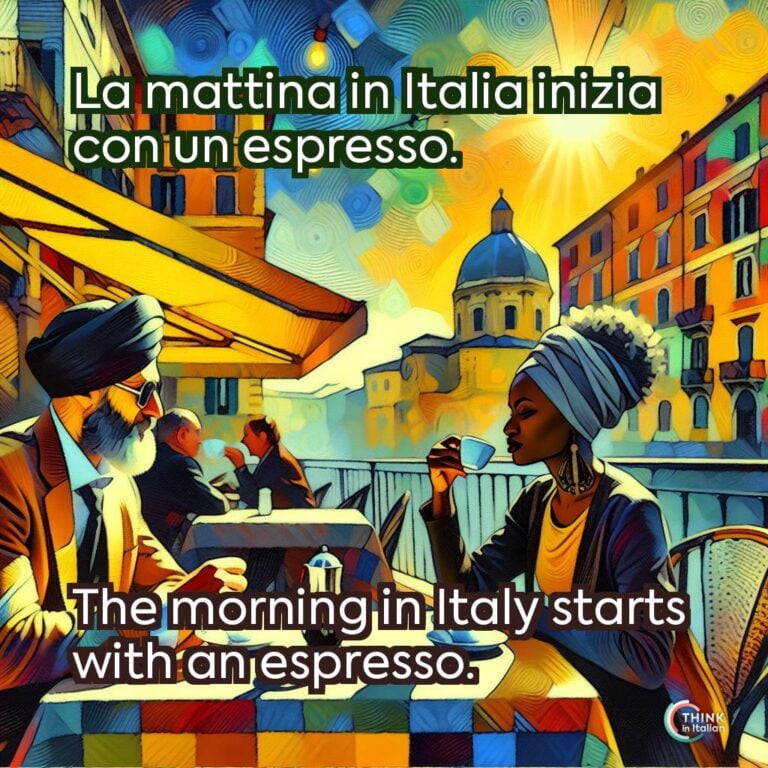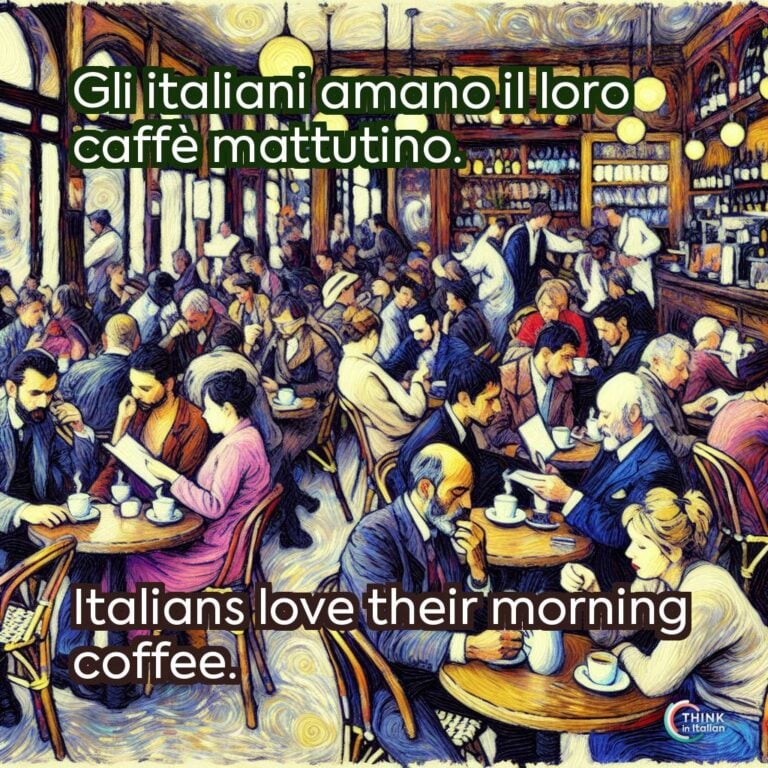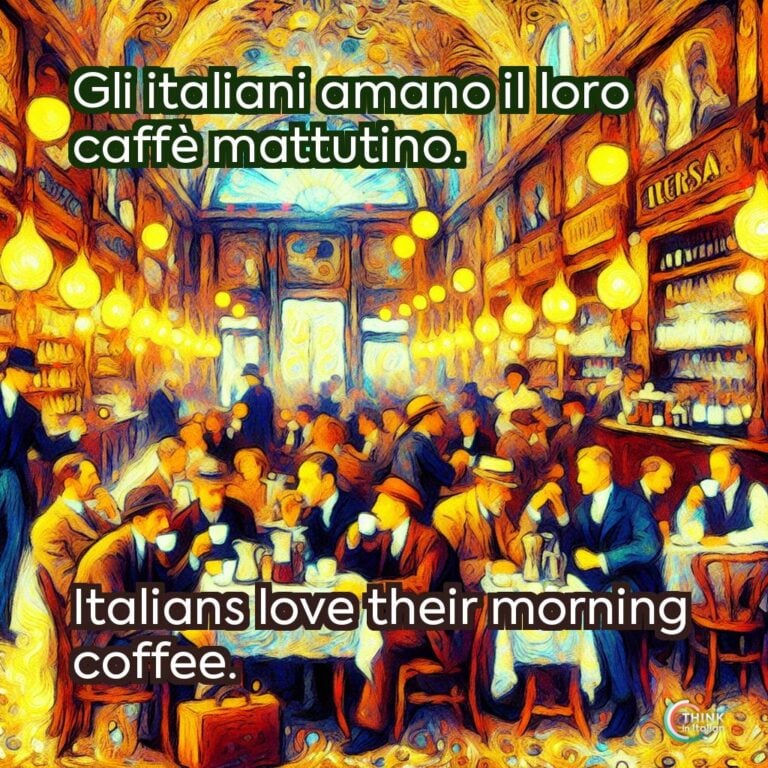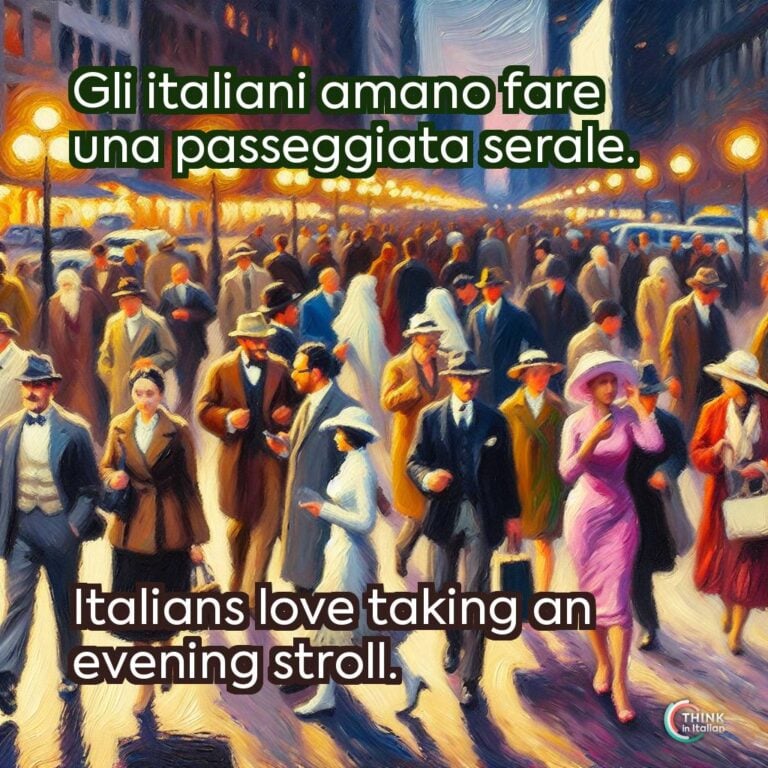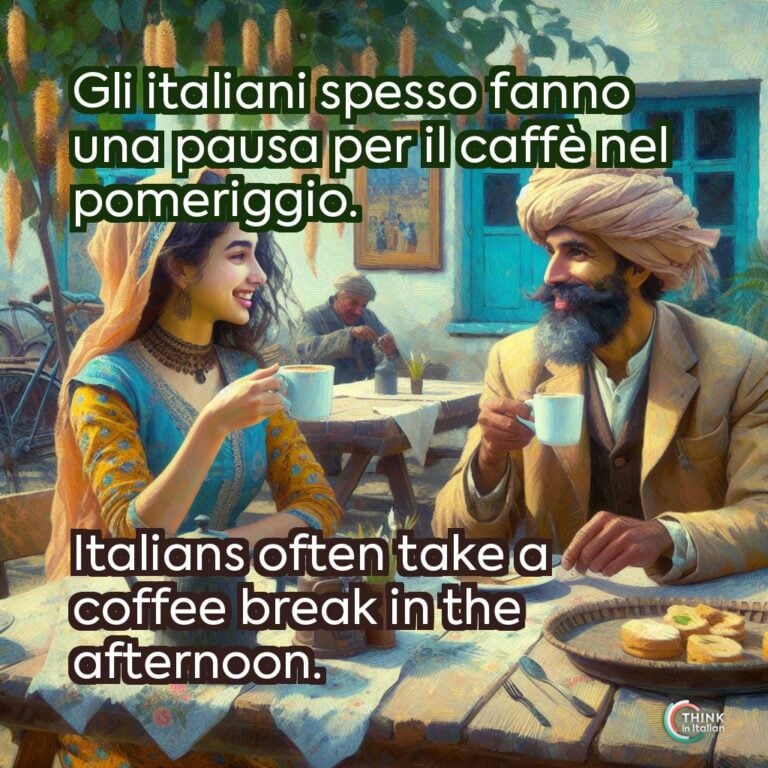Italian Daily Routine
Italian Mornings
Italian people place a high value on their morning rituals and take pride in their coffee preparations. In the morning, Italians prefer espresso to start their day on a strong note and embrace its quick nature.
Compared to other cultures, breakfast in Italy is usually pretty simple. Imagine the expression that international friends make when I tell them I usually don’t have breakfast, but I only drink a coffee!
But if you are one of those that must fill their stomach as soon as they wake up, no worried. The typical Italian breakfast at a typical Italian bar often consists of an espresso, or cappuccino, and a small pastry, like a brioche.
In the social landscape of Italy, the coffee bar plays a central role. It is a place where people meet before or after work, or catch up during breaks, fostering a sense of community and belonging.
The Italian coffee culture thrives on its speed and sociability, in fact Italians typically consume their coffee quickly, standing at the bar, fully engaging with the experience.
Around 7 am already, Italian streets in cities are full with commuters, navigating through narrow, cobbled lanes or more modern avenues, while public transport buzzes with activity. It is 8 am, and most Italians are already working.
Italian Afternoons
Italian afternoons reflect a balance that is central to Italian city life characterized by special time dedicated to food and rest.
Restaurants are popular spots during the early afternoon: lunch is an important meal in Italy, and whether you are home or somewhere with your colleagues, it’s not uncommon for Italians to take time to enjoy a leisurely lunch.
Something that I love is that many Italian cities observe a quiet period in the early afternoon, especially during the hot months. During this couple of hours businesses and shops might close, allowing for a rest period known as the riposo.
It is usually 3 pm and, after the riposo, shops and businesses reopen and the pace of city life picks up once again. People return to their daily routines, including shopping, returning to work, or running errands.
Italian Evenings
A very typical Italian evening starts around 6 pm, with an aperitivo, a cherished cultural practice where cafes and bars offer pre-dinner drinks often accompanied by snacks. This is definitely my favorite moment! I look forward to an Aperol Spritz with my friends.
Italians are also very active: evenings are often for sports or a typical passeggiata. Because of these reasons, most Italians typically eat dinner later than many other cultures, often starting around 8 pm or later.
Restaurants become lively gathering spots, while home dinners are a perfect moment for families to gather and spend time together.
Italian Nights
After dinner, the nightlife begins to pick up: bars, clubs, and cafés start to fill. Some shops, especially in tourist areas, may stay open late, providing opportunities for post-dinner shopping.
In general, squares and public spaces remain vibrant and busy into the night, with locals and tourists alike enjoying the ambiance. Street performers, artists, and vendors often contribute to a festive atmosphere.
Italian Routines: Food, Family, Work, Leisure
Italian Food Culture
Italian food culture is known worldwide for its rich flavors, fresh ingredients, and regional specialties, such as Neapolitan pizza, Tuscan steak, and Sicilian cannoli. The Italian cuisine offers a wide range of dishes, from pasta and pizza to risotto and gelato.
We emphasize the use of fresh, high-quality, and seasonal ingredients: whether it’s a simple Caprese salad in the summer or a hearty bowl of minestrone in the winter, seasonal ingredients are prioritized.
Italians have a strong sense of culinary tradition, passed down through generations. Many families have their own treasured recipes and secret techniques. When my grandmother died, we stopped eating mushroom in a specific way, because she was the only one able to cook them that good!
Italian Work Life
Italian workdays often start at 9 am and finish at 6 pm. They are usually punctuated by a long lunch break, allowing for rest and a meal with family or colleagues. This break can last up to two hours, especially in the southern regions.
The Italian work culture is characterized by a strong emphasis on relationships, with considerable time devoted to face-to-face meetings and personal interactions, Also, Italian businesses often exhibit a hierarchical structure, where respect for authority plays a significant role.
The pandemic has accelerated the adoption of remote work in Italy. Many companies now offer hybrid work models, allowing employees to work from home several days a week.
Italian Family and Social Life
What I noticed traveling abroad is that family and social life play a significant role in the Italian culture. Italians highly value spending quality time with their loved ones and prioritize shared meals and gatherings.
These social interactions not only strengthen family ties but also provide ample opportunities for building relationships and creating cherished memories.
In Italian society, the concept of famiglia (family) extends beyond family members, encompassing relatives and close friends as well. This is reflected in the social life, which revolves around activities and traditions that are community-oriented.
The importance of family and social life in Italy goes beyond personal well-being. It contributes to the overall fabric of Italian society, promoting a sense of unity and belonging.
Leisure and Recreation in Italy
In Italy, sports and outdoor activities offer a wide range of options for both locals and tourists to stay active and enjoy the beautiful landscapes.
Football, or soccer, among all other sports, is the most popular sport in Italy. Italian Serie A matches draw large crowds, and you can even join a local team or watch a game at a nearby stadium.
What I love the most is hiking: Italy is home to breathtaking natural landscapes, including the stunning Dolomites and the famous Cinque Terre. I will never say no to a walk in the nature!
What are you Doing Tomorrow?
I will surely wake up, drink my coffee, and start working. An extended and relaxing lunch break is sacred, and after working again in the afternoon, I’ll go to the gym. Then, dinner with friends and maybe playing board games.
As you can see, Italians do not need too much to be happy. The Italian daily routine beautifully captures the essence of Italian culture, blending vibrant work ethics with a deep appreciation for leisure and social interactions.
From the morning espresso to the leisurely evening passeggiata, the Italian daily life emphasizes balance and enjoyment. Understanding this daily rhythm will enrich your appreciation of the Italian culture.

